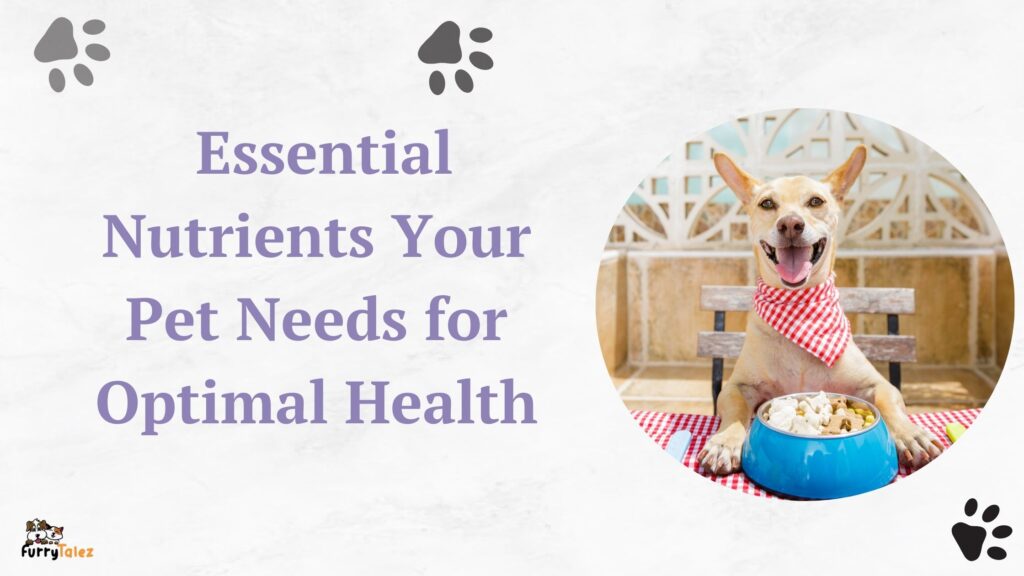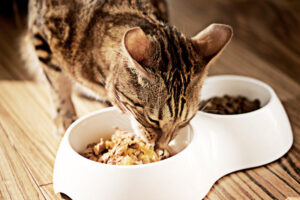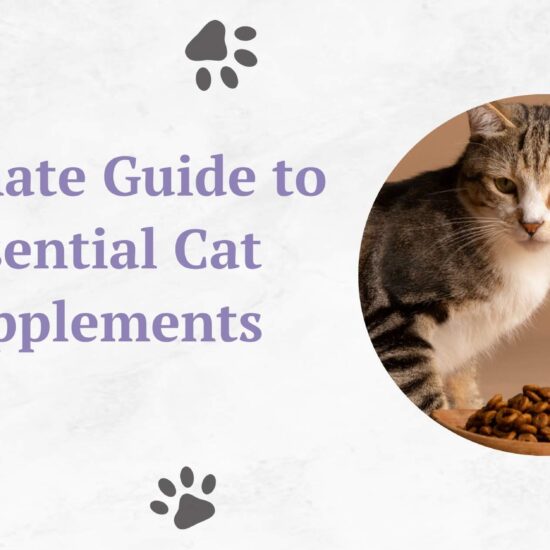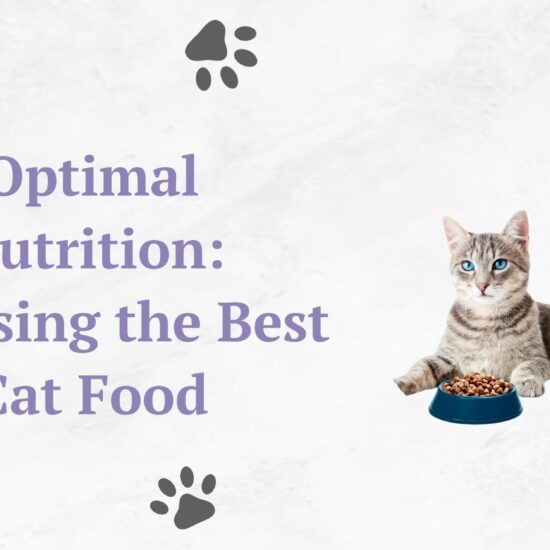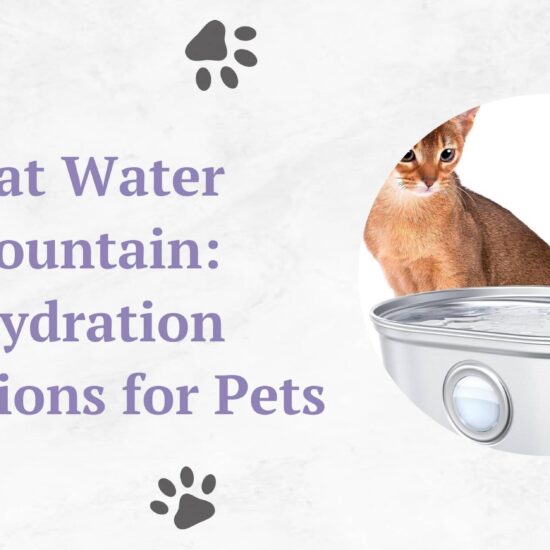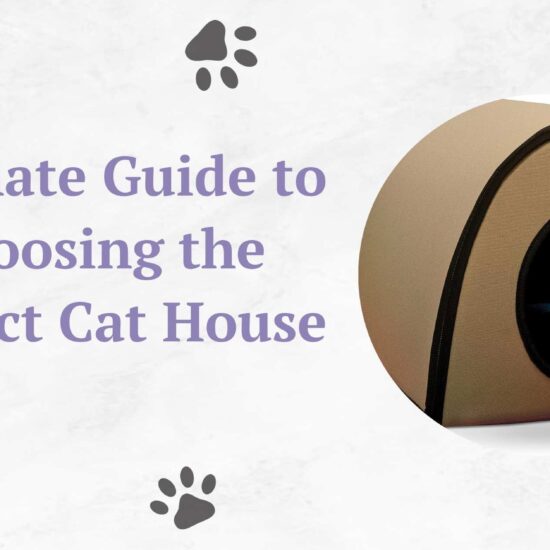Our pets are more than just companions–they’re members of our families. We want them to live long, happy, and healthy lives. A key part of ensuring their well-being is providing a balanced and nutritious diet.
Table of Contents
Introduction
Here’s a look at the essential nutrients both dogs and cats need, and how to make sure your furry friend is getting everything they require thriving.
Understanding Your Pet’s Nutritional Needs
Dogs: Dogs are omnivores, meaning they need a mix of animal and plant-based nutrients. While they can digest some plant matter, their primary focus should be on high-quality protein and healthy fats for energy and optimal bodily functions.
 Cats: Cats are obligate carnivores, making them uniquely dependent on animal-based proteins and fats. They cannot efficiently digest plant matter and rely on meats for essential nutrients like taurine, which is vital for heart and eye health.
Cats: Cats are obligate carnivores, making them uniquely dependent on animal-based proteins and fats. They cannot efficiently digest plant matter and rely on meats for essential nutrients like taurine, which is vital for heart and eye health.
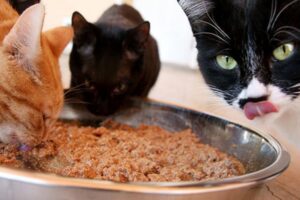
The Cornerstones of a Healthy Pet Diet
Water: The Lifeblood Clean, fresh water is absolutely crucial for every living being. Your pet should always have access to water and have their bowl refilled regularly. Water assists in digestion, body temperature regulation, waste removal, and overall organ function.
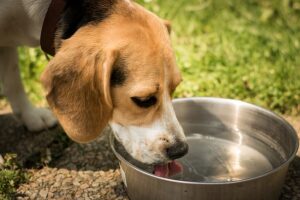
Proteins: Building Blocks for Growth and Repair Proteins are made up of amino acids that are essential for building muscle, repairing tissues, maintaining healthy skin and fur, and supporting the immune system. Look for pet foods with high-quality protein sources like chicken, fish, beef, or lamb.

Fats: Energy and Nutrient Absorption Fats are a concentrated energy source. They also aid in absorbing certain vitamins and contribute to a healthy coat and skin. Healthy fats can be obtained from sources like fish oil, poultry fat, and some plant-based oils.

Carbohydrates: Fuel for Activity Though not strictly essential for cats, carbohydrates provide a convenient source of energy, especially for active dogs. They also contribute to dietary fiber. Look for digestible sources like whole grains, brown rice, and sweet potatoes.
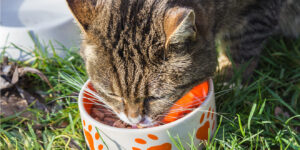
Vitamins: Supporting Body Functions Vitamins are essential for various bodily tasks, including immunity, eyesight, bone growth, and metabolism. Some crucial ones include:
Vitamin A: Vision and skin health
Vitamin C: Antioxidant and immune function
Vitamin D: Bone health and calcium absorption
B-Complex Vitamins: Energy production and metabolism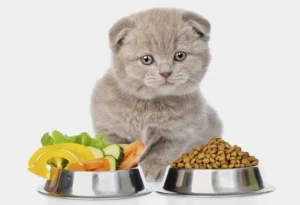
Minerals: The Inorganic Essentials Minerals aid in building strong bones and teeth, oxygen transport, regulating fluid balance, and nerve function. They’re divided into two groups:
Macrominerals: Needed in larger quantities, such as calcium, phosphorus, and magnesium.
Microminerals: Needed in smaller quantities, like iron, zinc, and selenium.
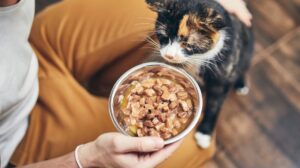
Choosing the Right Diet
Navigating the vast array of pet food options can be overwhelming. Let’s break down how to choose the right diet to nourish your furry friend.
Types of Commercial Pet Food
Dry Food (Kibble): Convenient, affordable, and helps maintain dental health through the chewing action. Look for kibble with high protein content and digestible carbohydrates.
Wet Food (Canned): Palatable, moisture-rich (helpful for hydration), but can be more expensive. It’s suitable for picky eaters or pets with dental issues.
Semi-Moist: Offers a compromise in texture, but often higher in sugar and preservatives. Not always nutritionally complete, so best as an occasional treat rather than a primary food source.
Raw Food: Based on the concept of mimicking an ancestral diet, this is a controversial option. While potentially beneficial, raw diets carry risks of bacterial contamination and nutritional imbalances if not carefully formulated.

Note: There might be affiliate links mentioned here. We may receive a commission if you purchase a product through an affiliate link. There is no additional charge for you. Please do your own research before making any online purchases.
Decoding the Label
Ingredient List: Listed in descending order by weight. The first few ingredients should be recognizable meat sources (e.g., chicken, beef, fish). Avoid vague terms like “meat by-products” or “meat meal,” as they denote lower quality protein.

Guaranteed Analysis: Provides a minimum and maximum percentage of crude protein, crude fat, crude fiber, and moisture content. This helps compare the nutrient density of different foods.

AAFCO Statement: The Association of American Feed Control Officials (AAFCO) establishes nutritional standards for pet foods. Look for a statement indicating the food is “formulated to meet the nutritional levels established by the AAFCO…”
Beyond the Basics
Life Stage: Choose foods designed for puppies, kittens, adults, or seniors as they have varying nutrient needs.

Breed-Specific Formulas: Some brands cater to specific breeds, considering their size, energy levels, and potential health predispositions.

Prescription Diets: For pets with medical conditions, your veterinarian may recommend a specialized diet formulated to manage diseases like kidney failure, food allergies, or urinary problems.

Cost vs Quality
Higher-quality pet food might be more expensive initially, but it can lead to long-term health benefits and potential savings on vet bills. Cheaper foods often contain lower-quality ingredients and fillers that provide less nutritional value.
Transitioning Foods: When switching your pet’s diet, introduce the new food gradually over a week or two to help avoid digestive upset.

Consult Your Veterinarian
Your vet is your best ally when determining the optimal diet for your pet. They have a comprehensive understanding of your pet’s health and can recommend foods based on:
Pre-existing Conditions: If your pet has diabetes, allergies, or organ issues, they may require a 
Weight Management: Your vet can help determine your pet’s ideal weight and suggest foods to support healthy weight loss or maintenance.

Individual Preferences: Finicky eaters might benefit from specific flavors or textures. Your vet can help tailor solutions.

Remember: A balanced and nutritious diet plays an immense role in your pet’s overall well-being and longevity. Invest in good quality food, read labels carefully, and work with your veterinarian to ensure you’re making the best choices.
A Note on Supplements
While balanced pet foods typically contain adequate vitamins and minerals, supplements may be necessary in some circumstances. However, always consult your veterinarian before introducing any supplements to your pet’s diet.
Potential Consequences of Nutrient Deficiencies
An imbalanced diet can have severe repercussions for your pet’s health:
- Skin and coat problems
- Weak immune system
- Digestive issues
- Developmental problems in young animals
- Weight problems
- Increased risk of chronic diseases

Signs Your Pet May Have a Nutritional Deficiency
- Dull coat or excessive shedding
- Lethargy or weakness
- Changes in appetite
- Abnormal stool
- Unexplained health issues
If you notice these signs, consult your veterinarian promptly.
The Bottom Line
Ensuring your pet gets the right nutrients is one of the best ways to safeguard their health and well-being. Work with your vet, pay attention to quality ingredients, and observe your pet for signs of potential imbalances. A healthy diet is a foundational step towards a long and happy life for your furry companion.


